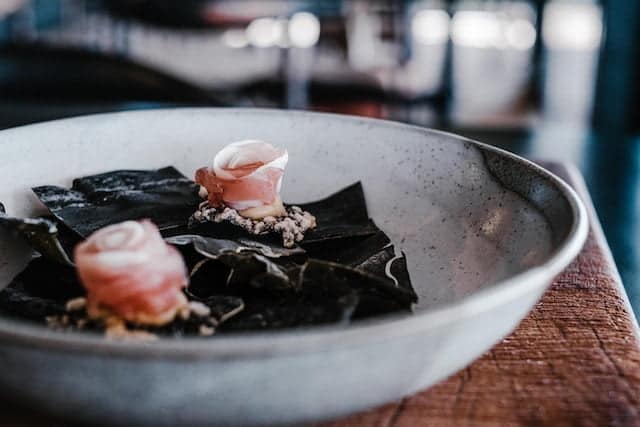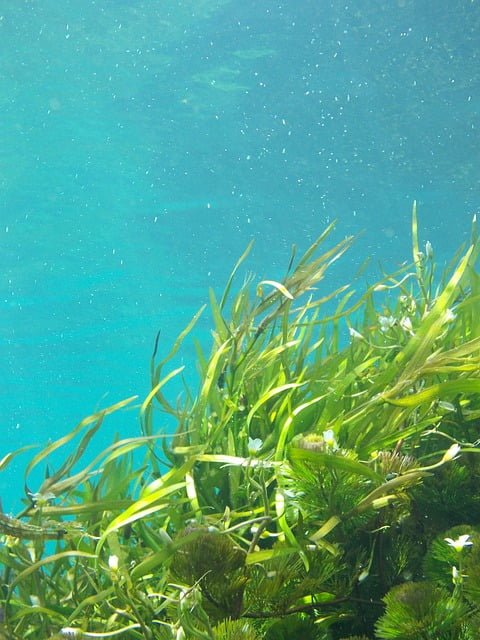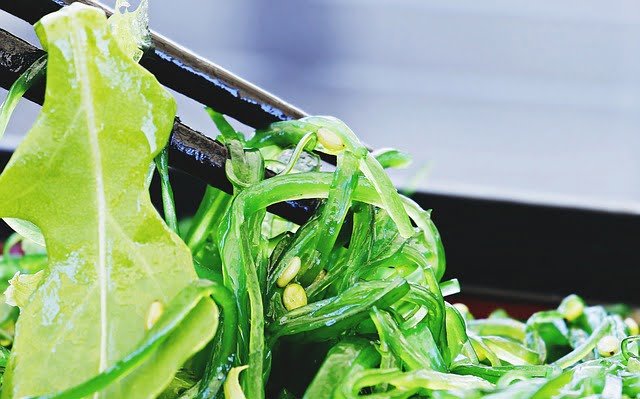We will try our best to answer your many questions related to seaweed like What is seaweed? Is Seaweed Vegan? Is Seaweed Healthy or Harmful? What are the risks of eating seaweed, Is Seaweed Used in Cuisine? and more Information on Seaweed with Frequently Asked Questions and Youtube Video Information on the same topic – Is Seaweed Vegan? Is Seaweed Healthy or Harmful?
Let us find out if Is Seaweed Vegan? Seaweed is a type of algae that grows in the ocean. It is an important food source for many marine animals, and some people also eat it. Seaweed is high in vitamins and minerals, and it can be used in many different ways. Is seaweed suitable for vegans? Seaweed, a type of marine plant, is well-known for its nutritional advantages. It is commonly consumed in Korea, China, and Japan, where it forms an integral part of their daily meals.
Many individuals who have recently transitioned to a vegan diet often find themselves uncertain about whether seaweed is permissible to consume, given its association with seafood. This common query arises from the confusion surrounding the vegan status of seaweed as seaweed is associated with seafood as well. That is why we are trying to answer the burning query – Is Seaweed Vegan? Is seaweed Healthy or Harmful?
So, is seaweed vegan? The answer is YES. But remember that some types of seaweed are poisonous, and others are not very palatable though it’s vegan. It is important to know which types of seaweed are safe to eat and which are not. Seaweed falls under the category of sea vegetables and is considered vegan-friendly since it does not involve any animal by-products in its production. Additionally, seaweed is a valuable source of iodine and other nutrients that are beneficial for vegans.

Is seaweed vegan?
Seaweed is completely vegan as it is derived from plants and does not contain any animal products. Many researchers agree that all types of seaweed are suitable for vegans. Additionally, studies have indicated that seaweed is a valuable source of plant-based protein, making it a beneficial addition to vegetarian diets. Furthermore, branded seaweed products are clearly labeled as vegan, providing further evidence that seaweed is vegan-friendly and can be easily incorporated into vegetarian recipes.

Check out this video on Is Seaweed Healthy or Harmful
Now that we know seaweed is vegan, do you know if it is healthy or harmful to your health? Does it matter to your body chemicals and mody mechanics on how you eat seaweed and with WHAT DO you eat seaweed? Let’s find out if Is Seaweed Healthy or Harmful.
A YouTube Video on What is Seaweed and Its Benefits
Seaweed is a type of algae that grows in the ocean. There are more than 10,000 different species of seaweed, and they come in a wide variety of colors, including green, red, and brown. Seaweed is an important food source for many animals, including humans. It is also used to make several products, such as cosmetics, fertilizer, and even fuel. What is Seaweed? – Dr.Berg Explains Roasted Seaweed Benefits
What are the different types of seaweed?
Different types of seaweed have different purposes. There are three main types of seaweed – purple, green, and brown.
1. Purple seaweed is often used in skincare products due to its high concentration of antioxidants.
2. Green seaweed is rich in iron and calcium and is often used as a dietary supplement. It is also a popular ingredient in Asian cuisine.
3. Brown seaweed is a good source of iodine and is used in some countries as a salt substitute. It is also used in sushi rolls and as a wrapping for other seafood dishes.

What are the nutritional benefits of eating seaweed?
Seaweed is a type of algae that grows in the ocean. It is a nutritious food that is high in vitamins and minerals, including iodine, iron, and calcium. Seaweed stands out as a highly nourishing food, packed with essential vitamins like A, C, E, and K, as well as beneficial minerals such as calcium, iron, zinc, and magnesium. Additionally, sea vegetables possess the ability to reduce blood pressure due to the presence of arginine, an amino acid that promotes the dilation of blood vessels, facilitating smoother blood flow.
Some people believe that eating seaweed can help to improve health, especially thyroid function and heart health. Seaweed is also thought to have anti-inflammatory properties and to be helpful in detoxifying the body. Seaweed is a great source of Iodine – Iodine plays a crucial role in maintaining the proper functioning of your thyroid hormones, which is essential for regulating your metabolism and energy levels. Additionally, it aids in weight management as your thyroid determines your body’s resting metabolic rate.
While seaweed is generally safe to eat, some people may be allergic to it. If you experience any adverse reactions after eating seaweed, discontinue use and consult your doctor. The health benefits of seaweed are derived from its rich mineral content. Additionally, seaweed is packed with antioxidants that safeguard cells against damage caused by unstable molecules known as free radicals. These antioxidants work by intercepting free radicals before they can bind to vital proteins in the body and cause harm.
What are the risks of eating seaweed?
There are four main risks associated with eating seaweed:
1. toxins
2. heavy metals
3. radiation
4. parasites
How can I tell if seaweed is edible?
Not all seaweed is edible, and some types can even be poisonous. So, how can you tell if seaweed is safe to eat?
First, look for signs of life. If the seaweed is still alive, it’s more likely to be edible. Second, smell the seaweed. If it has a strong or unpleasant odor, it’s probably not edible. Finally, taste a small piece of the seaweed. If it’s bitter or otherwise unpleasant, don’t eat it.
If you’re unsure whether a particular type of seaweed is edible, err on the side of caution and don’t eat it.
How do I prepare seaweed for eating?
Seaweed is a type of algae that grows in the ocean. While not all algae are seaweed, all seaweed is algae. Seaweed has been a part of the human diet for centuries and is a traditional food in many coastal cultures.
Seaweed is a nutrient-dense food and is a good source of vitamins, minerals, and fiber. It is also low in calories and fat. Seaweed can be eaten raw, dried, or cooked. It is often used as a flavoring or seasoning in soups, salads, and other dishes.
There are many different types of seaweed, and not all of them are edible. Some common edible seaweeds include nori (used to make sushi rolls), kelp (used in soups and stews), dulse (a type of red algae often used as a seasoning), and arame (a type of brown algae often used in salads).
When preparing seaweed for eating, it is important to rinse it thoroughly to remove any dirt or sand. Dried seaweed should be soaked in water for 5-10 minutes before eating. Cooked seaweed can be added to soups or stir-fries, or simply served on its own as a side dish.
Is Seaweed Used in Cuisine
It’s surprising how versatile slimy seaweed can be! This ingredient may not seem like much, but it packs a punch in the kitchen, adding its unique flavor and texture to a variety of dishes.
While seaweed is commonly associated with Japanese cuisine, where it’s used to make sushi and other traditional dishes, it actually has its origins in Chinese cuisine. For centuries, it has been used as a seasoning or wrap in Chinese cooking. In Korea, it’s often used to wrap steamed rice, and in Vietnam, it’s commonly used as a garnish.
Are there any health concerns I should be aware of before eating seaweed?
Yes, there are some health concerns you should be aware of before eating seaweed. Some types of seaweed can contain high levels of iodine, which can be dangerous for people with certain medical conditions such as thyroid disorders or kidney disease. If you have any concerns about your iodine intake, speak to your doctor or a Registered Dietitian Nutritionist (RDN) before adding seaweed to your diet.
Certain types of edible seaweed are also known to absorb heavy metals from the water in which they grow. While this is generally not a concern for healthy adults, pregnant women, and young children should avoid eating seaweed that has been collected from waters that may be contaminated with heavy metals. For more information on safe seafood consumption during pregnancy, please visit the FDA’s website.
In general, it is best to buy seaweed that has been certified as sushi-grade or food-grade by a reputable organization. This ensures that the seaweed has been properly tested and is safe to eat.
What else do I need to know about eating seaweed?
There are a few things to keep in mind when eating seaweed. First, make sure the seaweed you’re eating is from a clean and reliable source. Second, don’t eat too much of it at once – a little goes a long way. And finally, be aware that some people may be allergic to seaweed. If you experience any adverse reactions after eating seaweed, stop eating it and see a doctor.
Frequently Asked Questions
What are some recipes that include seaweed?
There are many recipes that include seaweed as an ingredient, such as sushi rolls, miso soup, and seaweed salad. Seaweed is a healthy addition to any diet, as it is rich in vitamins and minerals. While all seaweed is edible, some varieties are more palatable than others.
Where can I buy edible seaweed?
Seaweed can be found in many different places, but not all of it is edible. You can find edible seaweed at some specialty stores, as well as online. When purchasing edible seaweed, make sure to check the label to ensure that it is safe to eat.
Is Spirulina Vegan?
Spirulina, a protein-dense green algae, is suitable for vegans because it's a robust source of vitamin B12. It's usually available in a powdered form. Not only is Spirulina packed with iron and vitamin A, it's also used in some cases to combat anemia and malnutrition. For maintaining a healthy brain, heart, digestive tract, lungs, and liver, Spirulina can be consumed either as a powder or in tablet form. Moreover, it's simple to mix a bit into a green smoothie or an acai bowl.
Is Hijiki Vegan?
Hijiki adheres to a vegan diet, but it's not suggested for consumption, and in fact, it's prohibited in multiple nations because of high arsenic concentrations. Hijiki boasts calcium content that is 14 times higher than milk and is abundant in fiber, which may seem appealing, yet certain food safety organizations would strongly discourage its intake. In case you intend to consume hijiki, it's probable that you'll have to hydrate it due to its coarse texture.



